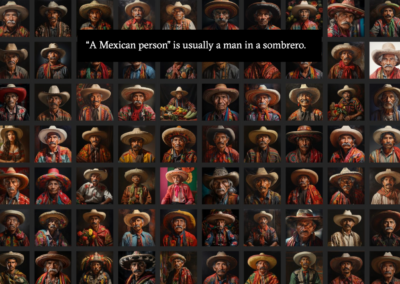Since the onset of the pandemic, organizations have had to rapidly adapt and innovate, fundamentally changing the way work happens. Whether we are ready or not, a lot of these changes are here to stay and people are eagerly exploring their career options. Now is the ideal time for leaders to rethink their strategy and talent plans. That change includes recognizing that your hiring process is full of bias – and doing something about it.
At the very foundation, most hiring processes incorrectly assume every employee is seeking a traditional career path. But climbing the ladder isn’t appealing to everyone, and isn’t even a supported option for those who have been systemically discriminated against. According to the most recent Rosie Report, only 27% of marketers say they must have upward mobility potential in their career. Instead, their careers flow in seasons, following the shifting phases and priorities of their lives. Employers that understand how to attract the right talent at the right time will attract the very best – and help stop the compounding effects of discrimination at the same time.
Making hiring decisions based on past titles and resume-filtering machines is similarly problematic. Companies often complain that it’s difficult to get diverse talent for a high-level, niche, or emerging role, but this is usually an opportunity to place a smart bet on someone who hasn’t ever held a relevant title. At We Are Rosie we pick people for opportunities based on four dimensions of fit – Pedigree or work history, Potential or abilities and traits, Passion or interests and desires, and Play or work style preferences – because we understand that the title they have held in the past isn’t necessarily reflective of their skill.
It’s also time we address gaps in resumes. These gaps have historically raised flags in the hiring process but occur for millions of legitimate reasons, ranging from childcare to health issues to transitioning genders to caregiving. (To put it into perspective, in the last 12 months, 43.5 million people were caregivers in the US.) During these gaps, talent is often accumulating a vast array of different skills, becoming well-rounded human beings, or gaining valuable life experience, empathy, and perspective. Gaps in resumes can actually be a superpower – celebrate them!
Another bias lurking in your hiring process is requiring a college degree, which can be prohibitive for attracting diverse talent. For some, college isn’t an option or they might start their degree and then life gets in the way. If we are going to dismiss people who have encountered hardship then we are missing out on inclusion. They may not fit the mold of what we want to consider normal but the fact is, most people don’t fit that mold. Top companies like Google and Apple have already realized this and have done away with the college requirement.
Basing salaries on previous roles? Also building bias on bias. Paying someone based on what they made at their last job assumes everyone starts from a point of pay parity. Sadly, women and especially women of color continue to be considerably underpaid, so it only serves to perpetuate pay inequity to base their financial future on their financial past. It’s ok (and appropriate and even fair!) to give someone a big jump in pay to get to parity. It’s also ok to hold firm on your offer to a candidate negotiating from a privileged background to keep the playing field for all employees level.
Finally, strict in-office requirements need to be a thing of the past. 100% of marketers surveyed for the Rosie Report want the option to work remotely. Similar to gaps in a resume, there are a multitude of reasons why someone may not be physically able to work in an office. Among them, a physical disability, social anxiety, or the need to be accessible to an aging loved one. In a survey conducted by Deloitte, 94% of respondents say they benefit from work flexibility and cite less stress and improved mental health. Open the geographical boundaries, and you will open your organization to productivity and inclusion.
63% of marketers are looking to make a change this year, and they are looking for companies that are thinking – and hiring – differently.
Editor’s Socials – Jessie Kernan: LinkedIn, Twitter, Instagram



